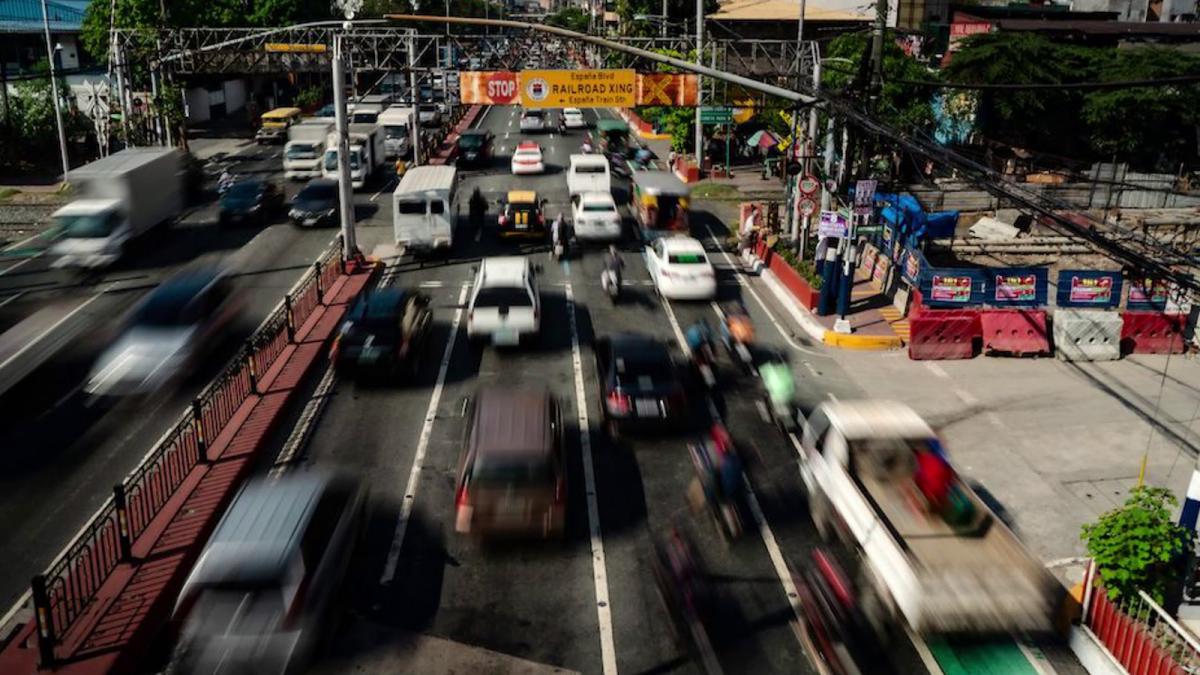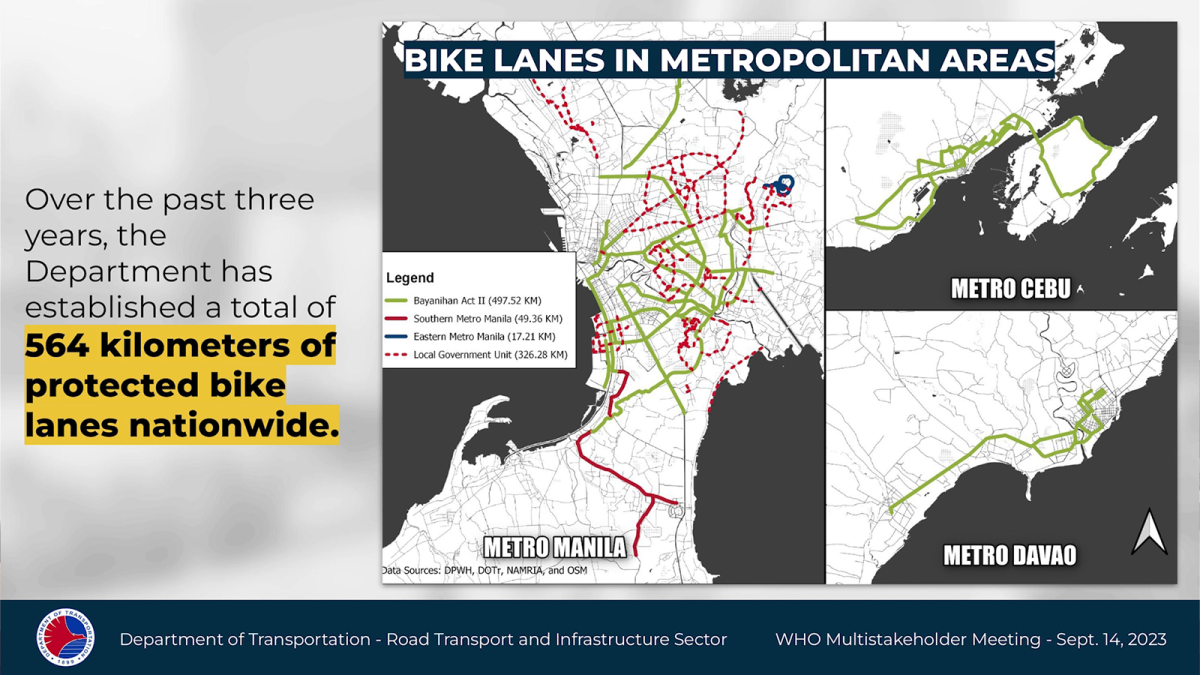NCD Alliance
People living with NCDs are front and centre of the NCD response in the Philippines
Meaningful Engagement of People with Lived Experiences
07 Nov 2023
World Health Organization | 19 Sep 2023
A lack of physical activity is a known risk factor for noncommunicable diseases and mental health conditions. In the Philippines, some 41% of the adult population is reportedly not moving or exercising enough, increasing the risks of heart disease, diabetes, and other health conditions. In a bid to reduce health risk factors and provide equitable access to healthier transport options and recreational spaces, several national government agencies joined forces over two successful multisectoral health initiatives.
Local green spaces for sports and recreational activities and ready access to sustainable and active means of commuting are known to be beneficial for public health, particularly in densely populated areas. In the Philippines, the COVID-19 pandemic exposed major gaps in health-enabling environments and sustainable transportation networks in urban centres across the country. During the prolonged lockdowns, many citizens experienced an increase in stress, mental health problems and exposure to behavioural risk factors such as obesity and physical inactivity.

In 2020, the Philippine government initiated two multisectoral programmes addressing this issue. The Active Transport programme promotes cycling and walking as alternative forms of transportation and aims to extend the network of dedicated bicycle and walking lanes in the three largest cities in the country. The Healthy Public Open Spaces initiative also provides communities with safe, well-ventilated public spaces for physical activity, exercise, relaxation and socializing with community members
“Traditionally, public health concerns were not systematically considered in physical infrastructure planning and urban development in the Philippines. We knew that we needed a decisive multisectoral angle to create a sustainable solution that benefits citizens and communities.”
- Rodley Carza, Director, Health Promotion Bureau at the Department of Health Philippines -
“Traditionally, public health concerns were not systematically considered in physical infrastructure planning and urban development in the Philippines”, said Director Rodley Carza with the Health Promotion Bureau at the Department of Health Philippines. “We knew that we needed a decisive multisectoral angle to create a sustainable solution that benefits citizens and communities”, he added.
For the Active Transport programme, the Departments of Health, Transportation, Public Works and Highways, and the Interior and Local Government issued a joint administrative order, an established legal tool to create guidelines for a specific policy or programme. Each department then contributed to implementing the programme through their roles: The Department of Health develops guidelines for safe active transportation and monitors relevant health data. The Department of the Interior and Local Government enforces traffic laws and ensures unobstructed bicycle lanes and walking paths. The Department of Transportation supports the integration of bicycle lanes and walkways in road networks, and the Department of Public Works and Highways ensures the provision of bicycle and pedestrian infrastructure on national roads and bridges.
Similarly, the Healthy Public Open Spaces Initiative is developed, engaging eight national government agencies. Among them is the Philippine Commission on Women, to establish safety mechanisms to prevent gender-based harassment in public spaces, and the Department of Environment and Natural Resources to deliver technical assistance in building healthy green and water spaces with open public access.
“We learned that roles and accountabilities in multisectoral initiatives need to be clearly defined. This means continuously building the technical capacity and effective communication skills in and across different government agencies, as well as establishing platforms for civil society groups and nongovernmental organizations to engage and contribute.”
- Rodley Carza, Director, Health Promotion Bureau at the Department of Health Philippines -
Since the programme’s inception in 2021, more than 500 km of bicycle lanes were built or improved in the Metropolitan areas of Manila, Davao, and Cebu as part of Active Transport. The multisectoral ownership of the initiative attracted additional investment from the government as well as additional resources and capacity building support from the private sector and multilateral organizations. Several civil society groups are additional supporting the programmes, and continue to advocate for more comprehensive health policies.

“Both our programmes were able to leverage a particular window of opportunity. In the aftermath of the COVID-19 pandemic, both government agencies and civil society actors or nongovernmental organizations had first-hand experience in collaborating closely for common public health goals”, recounted Rodley.
“Yet, we also learned that roles and accountabilities in multisectoral initiatives need to be clearly defined. This means continuously building the technical capacity and effective communication skills in and across different government agencies, as well as establishing platforms for civil society groups and nongovernmental organizations to engage and contribute.”, he concluded.
This feature story is part of a series compiling country experiences in leveraging multisectoral action for improved NCD and mental health policies and programmes. Read more on the key role of whole-of-government-approaches to tackle NCDs and mental health conditions in the global mapping report, or visit the digital repository on multisectoral action to explore further country experiences.